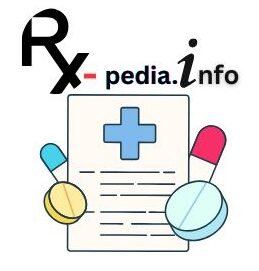
Table of Contents
Schizophrenia is a complex mental health condition that affects how a person thinks, feels, and behaves. While there’s no cure, effective treatments can significantly improve symptoms and quality of life. In this article, we’ll explore the various available schizophrenia treatment options , including medication, psychotherapy, and other therapies.
What is Schizophrenia?
Schizophrenia is a serious mental disorder that affects how a person thinks, feels, and behaves. People with schizophrenia may have difficulty distinguishing between what is real and what is imaginary; may withdraw from social interaction; and may have difficulty concentrating.
The Impact of Schizophrenia
Schizophrenia can have a significant impact on a person’s life, affecting their relationships, work, and overall well-being. It can lead to feelings of isolation, anxiety, and depression.
Why is Treatment Important?
Early intervention and treatment are crucial for managing schizophrenia. Treatment can help reduce symptoms, improve cognitive function, and enhance social and occupational functioning.
Medication
Medication is a cornerstone of schizophrenia treatment. Antipsychotic medications are the primary drugs used to manage symptoms.
Antipsychotic Medications
Antipsychotic medications work by blocking the effects of dopamine, a neurotransmitter that is overactive in the brains of people with schizophrenia. These medications can help reduce symptoms such as hallucinations, delusions, and disorganized thinking.
Common side effects of antipsychotic medications include:
- Weight gain
- Drowsiness
- Tremors
- Stiffness
- Dry mouth
- Blurred vision
It’s important to discuss any side effects with your doctor. They may be able to adjust your medication or prescribe additional medications to manage these side effects.
Long-Acting Injectable Antipsychotics
Long-acting injectable antipsychotics are a convenient option for people who struggle with medication adherence. These medications are administered by injection every few weeks or months and can help to ensure consistent treatment.
Psychotherapy
Psychotherapy, also known as talk therapy, can be a valuable tool in managing schizophrenia. It can help individuals develop coping skills, improve social relationships, and enhance overall quality of life.
Cognitive Behavioral Therapy (CBT)
CBT is a type of therapy that focuses on identifying and changing negative thought patterns and behaviors. It can help people with schizophrenia manage symptoms, reduce stress, and improve their overall well-being.
Psychosocial Interventions
Psychosocial interventions are a variety of therapies that can help people with schizophrenia manage their condition and improve their quality of life. These interventions may include:
- Family therapy: Family therapy can help improve communication and reduce stress within the family.
- Social skills training: Social skills training can help individuals develop the skills they need to interact with others.
- Vocational rehabilitation: Vocational rehabilitation can help people with schizophrenia find and maintain employment.
Other Treatments
In some cases, other treatments may be considered, such as:
Electroconvulsive Therapy (ECT)
ECT is a medical treatment that involves a brief electrical stimulation of the brain. It can be effective for people with severe symptoms of schizophrenia who have not responded to medication or other treatments.
Complementary and Alternative Medicine
While complementary and alternative medicine may offer some relief from symptoms, it’s important to consult with your doctor before trying any new treatments. Some people with schizophrenia may find relaxation techniques, such as yoga or meditation, helpful in managing stress and anxiety.
Choosing a Treatment Plan
Selecting the right treatment plan for schizophrenia is a collaborative process between you and your healthcare provider. Several factors will influence your treatment plan, including:
- Severity of symptoms: The severity and types of symptoms will determine the most appropriate treatment.
- Individual needs and preferences: Your personal preferences and lifestyle can impact your treatment choices.
- Side effects of medication: Your tolerance for side effects may influence your medication options.
- Access to treatment: Availability of specific therapies and healthcare providers in your area may also play a role.
Working with your doctor to develop a personalized treatment plan is essential. Your doctor will consider your individual needs and tailor a treatment plan that is right for you.
Managing Side Effects
Antipsychotic medications can cause a range of side effects, including:
- Weight gain: Weight gain can be a significant side effect of many antipsychotic medications.
- Metabolic syndrome: This condition is characterized by a cluster of risk factors, including high blood pressure, high blood sugar, and excess abdominal fat.
- Movement disorders: Some antipsychotic medications can cause movement disorders, such as tremors, stiffness, and involuntary movements.
- Sedation: Drowsiness and fatigue are common side effects of antipsychotic medications.
Strategies for managing side effects include:
- Regular monitoring: Your doctor will monitor your weight, blood pressure, and other health indicators.
- Healthy lifestyle: Eating a healthy diet, exercising regularly, and getting enough sleep can help manage side effects.
- Medication adjustments: Your doctor may adjust your medication dosage or switch you to a different medication.
- Additional medications: In some cases, additional medications may be prescribed to manage specific side effects.
Seeking Support
Living with schizophrenia can be challenging, but you don’t have to face it alone. Seeking support from family, friends, and mental health professionals can make a significant difference.
Support groups can provide a safe and supportive environment to connect with others who understand what you’re going through. Online resources can offer information, support, and community. Mental health professionals can provide therapy, medication management, and other services.
Conclusion
While schizophrenia is a complex condition, effective treatment can significantly improve symptoms and quality of life. By working closely with your healthcare provider, you can develop a personalized treatment plan that addresses your specific needs.
FAQs:
What are the early signs of schizophrenia?
Early signs of schizophrenia can include social withdrawal, changes in mood, difficulty concentrating, and unusual thoughts or perceptions.
Can schizophrenia be cured?
While there’s no cure for schizophrenia, effective treatment can significantly reduce symptoms and improve quality of life.
How long does schizophrenia last?
Schizophrenia is a chronic condition that requires ongoing treatment. However, with proper treatment, many people with schizophrenia can lead fulfilling lives.
Can stress trigger schizophrenia?
While stress may exacerbate symptoms of schizophrenia, it is not typically a direct cause of the disorder.











4 thoughts on “schizophrenia treatment options: A Comprehensive Guide to Finding Relief”